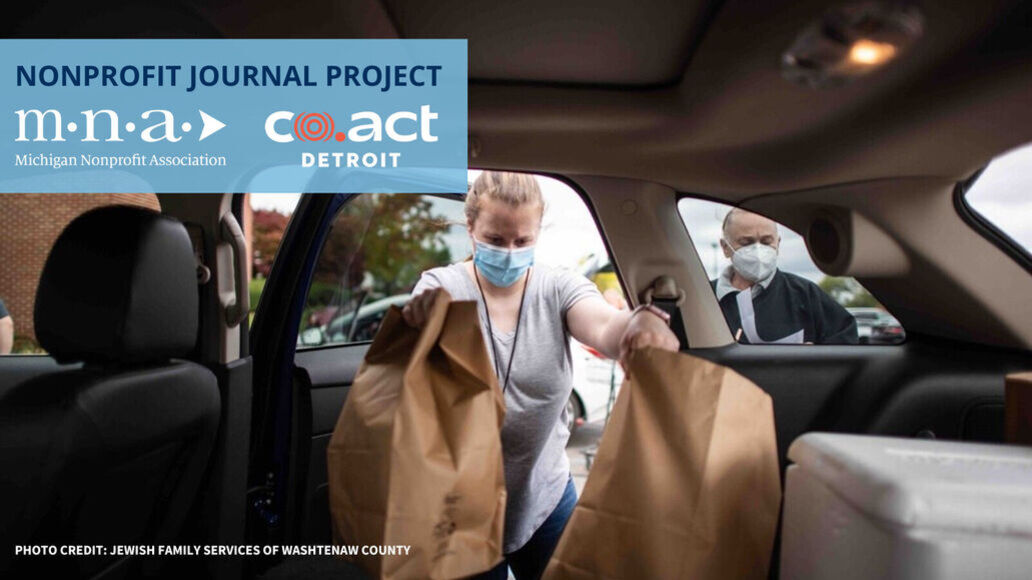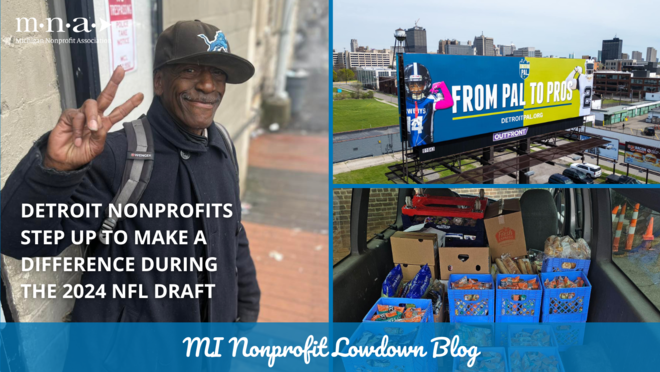Emergency food providers feel the crunch of rising costs amid inflation
- Posted On
- Category

At Jewish Family Services of Washtenaw County, which provides a specialty food pantry and other services for those in need, grants also play an important role in the nonprofit’s funding strategy – though recent trends in grantmaking favoring “innovation” have made acquiring funding for everyday operations more challenging.
“We keep it going day by day, but it does keep me up at night that safety net funding for human services organizations is very unreliable right now,” says Chief Program Officer Sarah Schneider Hong, noting that the nonprofit recently began purchasing halal meats from a new supplier in Dearborn, with kosher meats purchased in Oakland County, to control costs.
Emergency food providers feel the crunch of rising costs amid inflation
ERIN MARIE MILLER | TUESDAY, APRIL 18, 2023
As spring approaches and inflation continues to impact the cost of food and other necessities, emergency food providers are seeing an uptick in need in communities across Southeast Michigan – even as their operating costs rise.
“The prolonged crisis of inflation doesn’t discriminate between city or county boundaries and is permeating every part of our service area. We’re seeing increases in need across our region, in urban and rural areas, across age groups and reaching into what were stable households,” says Kristin Sokul, director of advancement strategy and planning at Gleaners Community Food Bank, which serves a network of over 500 emergency food providers in Wayne, Oakland, Macomb, Livingston and Monroe counties.
The reasons behind those increases are nuanced – factors ranging from rising grocery costs to rent increases, layoffs, high healthcare costs, lost public assistance benefits and more could be to blame.
But as more Michiganders turn to food banks and pantries for help, nonprofits like Gleaners are being faced with the daunting task of continuing to meet those growing levels of need amid reduced donations and an increasingly challenging economy.
Government support dwindles as need – and costs – rise
In Michigan, over 1.4 million individuals and 749,757 households participating in the federal Supplemental Nutrition Assistance Program, which supplements the food budget of needy individuals and families in the U.S., were impacted by the expiration of additional pandemic-related SNAP allotments in February, according to agency data as of Dec. 2022.
Depending on income levels and eligibility, SNAP participants lost a minimum of $95 in extra benefits in March, with some losing access to several hundred dollars in monthly nutrition assistance, according to examples on the state’s Food Assistance Program website.
At the same time, the cost of food-at-home increased 9.5% nationally in February compared to the same time last year, per the U.S. Bureau of Labor Statistics’ March Consumer Price Index – a convergence that could lead to a greater need for food assistance in the coming months.
“Whenever a household loses resources they rely on and have built a budget around, the need for that resource doesn’t go away. It means they must make tough tradeoffs, seek more support from family or friends if it’s available, or bring that increased need to the emergency food network. It’s difficult to predict the level of increase in households coming to us with the end of expanded SNAP, but we do expect to see the need for support from Gleaners and our partner network to go up as households face renewed crisis,” Sokul says.
Recently, Sokul says Gleaners’ network has seen “significant increases” in the number of first-time seniors, families and individuals visiting its emergency food network, with record numbers of visitors to its Fresh Market Pantry distributions at the Mercado Food Hub in Southwest Detroit and the Shared Harvest Pantry in Livingston County. The nonprofit’s mobile pantries also saw a 40% distribution increase in January 2023 compared to the same time last year.
Despite that growing demand, donations have been down in recent months – both from the public and government.
“Government-donated food had already been significantly decreasing into last fall, and it reached historically low levels in January and February 2023, even as community needs have continued to increase. That means that Gleaners has had to purchase significantly more food to help bridge the gap, while food costs and supply chain issues have made those purchases even more challenging,” Sokul says.
To overcome those obstacles, Gleaners has increased its fundraising capacity while evaluating opportunities with new and existing partners and consistently monitoring food distributions to maintain support in under-served communities.
“[Gleaners] is healthy, but community support will continue to be important to our ability to serve our neighbors in need with the food and programs that bring household stability and opportunity to thrive,” Sokul says.

